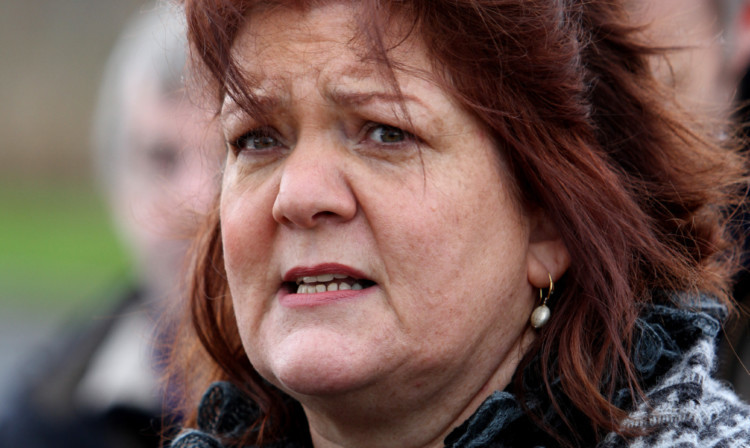Fife’s once thriving coalmines could still be creating employment for thousands if it was not for the legacy of Margaret Thatcher and her “lies” which broke the back of coalfield communities, it has been claimed.
Nicky Wilson, the president of the National Union of Mineworkers (NUM), told former colliery workers in Fife that there was no reason why the millions of tons of coal still lying beneath Fife could not be utilised to provide an industrial future for young people in decimated mining communities if the political will was there.
The hard-hitting comment came as Mr Wilson said the NUM would this week continue to investigate alleged “collusion” between government, the police and judiciary at the time of the miners’ strike.
Around 50 former colliery workers from across Fife staged a mock picket on Saturday to mark the 30th anniversary of the walkout.
The gathering at the entrance of the old Frances Colliery in Dysart was organised by Fife Labour councillor Tom Adams, a former pit worker and NUM official.
He was joined by three speakers who spoke movingly about the legacy of Thatcher and her link to the decline of Fife’s coalmines.
Mrs Thatcher is still blamed by many for the socio-economic impact and deprivation issues being felt in many former coalfield communities to this day.
Mr Wilson said: “It’s pretty ironic that we’re standing here at the gates of a colliery that’s closed and yet there are millions of tonnes of coal reserves under there.
“It could still be working today. The legacy that Thatcher and her government left to our communities and industry is that 40% of the electricity in this country is still produced from coal-fired power stations and ironically we import 60% of that coal from other countries.”
Cath Cunningham, who was chairwoman of the women’s group in Dysart during the strike, spoke with emotion about the high cost paid by mining communities in Fife.
While people could remain bitter, she said it was also important to “learn lessons” from what happened.
She said: “We are paying the price of what happened every day in our communities. When you were growing up in the 60s and 70s, what we had when we were teenagers was hope and we had expectations and we had aspirations.”
She said people could be bitter about the strike but they could also take positives from lessons learned.
Veteran Fife councillor Willie Clarke was chairman of Dysart Strike Committee and travelled across Scotland and overseas to bring in funds in support of mining families during the strike.
He said: “People need to realise what the strike was about. It was about workers. The fight goes on!”
